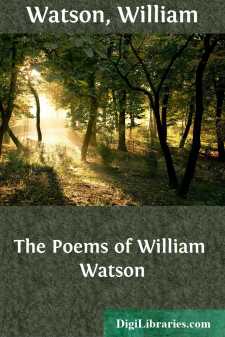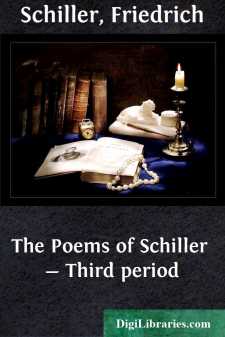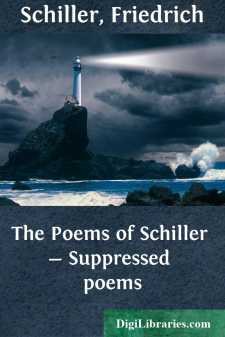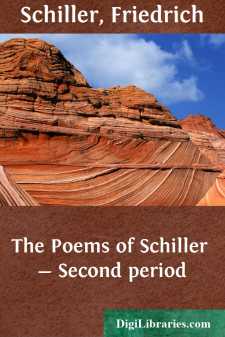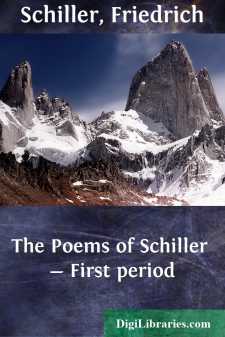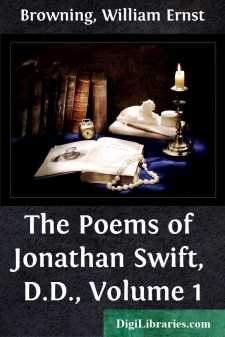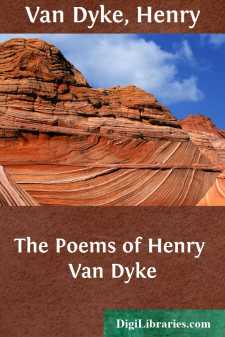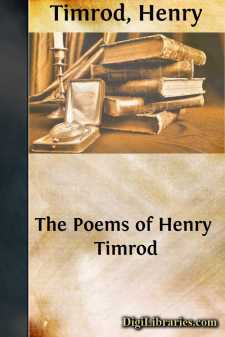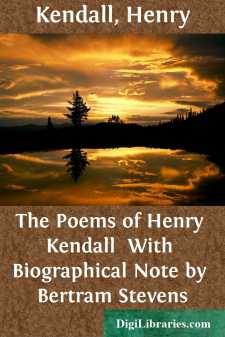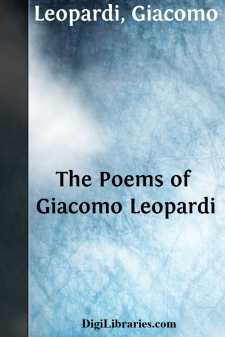Poetry Books
Sort by:
by:
William Watson
PRELUDE The mighty poets from their flowing storeDispense like casual alms the careless ore;Through throngs of men their lonely way they go,Let fall their costly thoughts, nor seem to know.—Not mine the rich and showering hand, that strewsThe facile largess of a stintless Muse.A fitful presence, seldom tarrying long,Capriciously she touches me to song—Then leaves me to lament her flight in vain,And...
more...
POEMS OF THE THIRD PERIOD. THE MEETING. I see her still—by her fair train surrounded,The fairest of them all, she took her place;Afar I stood, by her bright charms confounded,For, oh! they dazzled with their heavenly grace.With awe my soul was filled—with bliss unbounded,While gazing on her softly radiant face;But soon, as if up-borne on wings of fire,My fingers 'gan to sweep the sounding...
more...
SUPPRESSED POEMS. THE JOURNALISTS AND MINOS. I chanced the other eve,—But how I ne'er will tell,—The paper to receive.That's published down in hell. In general one may guess,I little care to seeThis free-corps of the pressGot up so easily; But suddenly my eyesA side-note chanced to meet,And fancy my surpriseAt reading in the sheet:— "For twenty weary springs"(The post from...
more...
THE INVINCIBLE ARMADA. She comes, she comes—the burden of the deeps!Beneath her wails the universal sea!With clanking chains and a new god, she sweeps,And with a thousand thunders, unto thee!The ocean-castles and the floating hosts—Ne'er on their like looked the wild water!—WellMay man the monster name "Invincible."O'er shuddering waves she gathers to thy coasts!The horror that...
more...
POEMS OF THE FIRST PERIOD. HECTOR AND ANDROMACHE. [This and the following poem are, with some alterations, introducedin the Play of "The Robbers."] ANDROMACHE.Will Hector leave me for the fatal plain,Where, fierce with vengeance for Patroclus slain,Stalks Peleus' ruthless son?Who, when thou glid'st amid the dark abodes,To hurl the spear and to revere the gods,Shall teach thine orphan...
more...
INTRODUCTION Dr. Johnson, in his "Life of Swift," after citing with approval Delany's character of him, as he describes him to Lord Orrery, proceeds to say: "In the poetical works there is not much upon which the critic can exercise his powers. They are often humorous, almost always light, and have the qualities which recommend such compositions, easiness and gaiety. They are, for the...
more...
by:
Henry Van Dyke
THE AFTER-ECHO How long the echoes love to play Around the shore of silence, as a wave Retreating circles down the sand! One after one, with sweet delay,The mellow sounds that cliff and island gave, Have lingered in the crescent bay, Until, by lightest breezes fanned,They float far off beyond the dying day And leave it still as death. But...
more...
by:
Henry Timrod
"A true poet is one of the most precious gifts that can be bestowed on a generation." He speaks for it and he speaks to it. Reflecting and interpreting his age and its thoughts, feelings, and purposes, he speaks for it; and with a love of truth, with a keener moral insight into the universal heart of man, and with the intuition of inspiration, he speaks to it, and through it to the world. It is...
more...
by:
Henry Kendall
Biographical Note Henry Kendall was the first Australian poet to draw his inspiration from the life, scenery and traditions of the country. In the beginnings of Australian poetry the names of two other men stand with his—Adam Lindsay Gordon, of English parentage and education, and Charles Harpur, born in Australia a generation earlier than Kendall. Harpur's work, though lacking vitality, shows...
more...
by:
Giacomo Leopardi
PREFACE. Giacomo Leopardi is a great name in Italy among philosophers and poets, but is quite unknown in this country, and Mr. Townsend has the honor of introducing him, in the most captivating way, to his countrymen. In Germany and France he has excited attention. Translations have been made of his works; essays have been written on his ideas. But in England his name is all but unheard of. Six or...
more...


